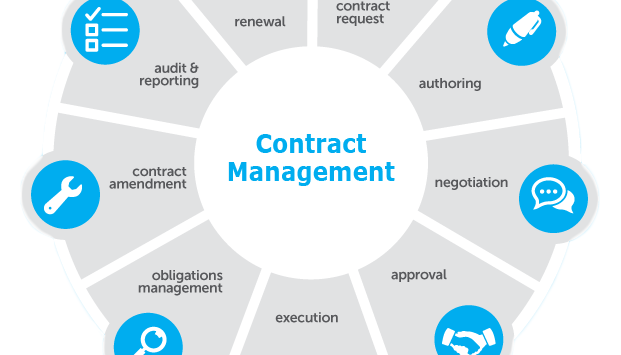They type and volume of contracts vary greatly among different industries. Whether you are a small business or a large international corporation, you still need a reliable system to manage your contracts. Contracts form the backbone of virtually every business and how they are managed can ultimately determine the success of an enterprise. When contracts are not managed in an efficient and standard way, it can lead to missed deadlines, payments and even an interruption in workflow. There is even a risk of litigation if contracts you don’t honor contracts. The data in contracts is valuable, both for current and future use. For that reason, you want your contract information to be accessible and easy to search.
Here are some tips for achieving a solid contract management system:
- Use contract management software. Contract management software has experienced explosive growth as businesses have realized how much more efficient it can make their businesses run. Most of today’s CMS (contract management software) uses some form of AI (artificial intelligence). This is generally in a form of machine learning where algorithms teach the software what information is most valuable to you, and the search parameters you need most. The tools included with such software make it the premier way to manage contracts and their accompanying documents in one format. Cloud-based systems allow users to track workflow in real-time, access contracts from anywhere, search by keywords, clauses, and dates. Some of the more sophisticated versions of data management software, such as Evisort, can even understand your contracts and automatically set risk mitigation alerts. These alerts can be anything from approaching expiration dates to missing clauses in the body of the agreement.
- Develop standardized language: If most of your contracts revolve around the same thing, then standardized language can save you time and make your deals easier to manage. If the language of each contract is virtually the same then you do not have to re-invent the wheel with every new contract. You create a template, and each contract can be a basic variation of that template. However, be careful that you don’t fall into the trap of letting your contracts become antiquated as your business grows and expands.
- Have standard reviews of each portion of the contracts life-cycle. Have an attorney look over any high value, high-risk contracts before executing them. Have your finance department check a deal before you issue or receive final payment. Having safety features, such as a double check in face, helps to alleviate the risk inherent in all contracts.
Once you have a good CMS in place, it is time to evaluate current and past contracts. CMS such as Evisort can do this for you, and help identify risk factors within the contract. It can also determine a litigation score, calculating how likely any given current contract is to result in litigation, based on the performance of previous contracts. If not using a CMS that is capable of doing this review, then it needs to be done manually. This type of review helps to identify any gaps in efficiency and provides helpful information about improving processes. It will also give you an overview of how many resources are being allocated to contract management and will help you improve your system for maximum efficiency. Be sure that whatever CMS you set in place is capable of handling where you see your business going, not just where it is today. Establishing a system that has the capacity to grow with your business will free up time so that you can focus on growing your business.


